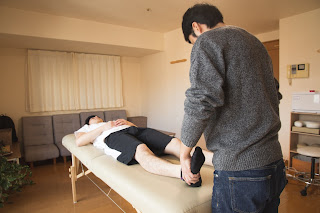Respect for Patients by Doctors
Mutual Relationship of respect & Dignity between Doctor
& Patients
Respect for the dignity of the
person: This principle is drawn from the Universal Declaration of
Human Rights (United Nations, 1948) which proclaims that the basis for freedom,
justice and peace is founded on the recognition of the inherent dignity and
equality of human beings.
Respect
and Dignity
Helping your loved one maintain
a sense of dignity can be one of the most difficult aspects of care-giving.
Take
a minute to consider your special role as a Doctor. More than a professional Doctor,
you know the person you care for. You know the whole person, his likes and
dislikes, his individual strengths and weaknesses, and his wants and needs.
It’s
easy to slip into a “protective” role when you care for someone else,
especially a family member. But we need to remember that unless the person is
experiencing some cognitive failure (brain damage because of a stroke,
dementia, or other health problem), he still makes decisions about his life.
Sometimes he may make decisions that you wouldn’t make, but it is his choice.
This can be difficult for you as a caregiver; you will need to watch yourself
and guard against over-protection.
Among the most important human
needs is the desire for respect and dignity. That need doesn’t change when a
person becomes ill or disabled. Indeed, it may grow even stronger.
There
are many things you as a doctor can do to make sure the Patients in your care
receives the respect and dignity that is every person’s basic human right
Give Treatment Patients
With Dignity.
·
Listen to his concerns.
·
Ask for his opinions and let him
know they are important to you.
·
Involve him in as many decisions
as possible.
·
Include him in the conversation.
Don’t talk about him as though he’s not there.
·
Speak to him as an adult, even
if you’re not sure how much he understands.
Patients tell us that dignity and
respect means:
• being treated with care and compassion;
• polite, courteous staff;
• having their privacy and dignity actively
respected; and
• having their views listened to and taken
into consideration.
7
ways to ensure respectful care Patients
·
Treat every patient equally.
...
·
Remember basic courtesies. ...
·
Be present with your patient.
...
·
Get acquainted. ...
·
Understand the patient perspective.
...
·
Communicate with respect.
...
·
Replace labeling with positive
solutions.
www.orthoneurophysioclinic.in www.orthoneurophysioclinic.com
#orthoneurophysioclinic
https://www.facebook.com/atlas.healthcare.92
https://business.google.com/posts/l/10842143055492898829
https://www.linkedin.com/in/orthoneurophysioclinicatlas-healthcare-5019091a9/
https://twitter.com/DrRavinderKumar
https://www.facebook.com/orthoneurophysioclinic/
https://www.youtube.com/channel/UC8G-KN4fJV9O2yffNhpwMhw?view_as=subscriber









